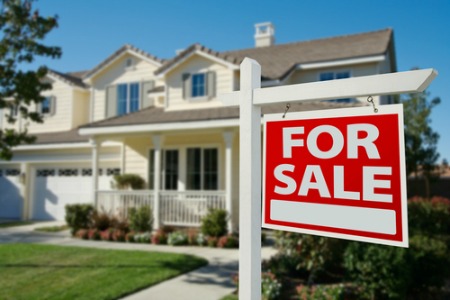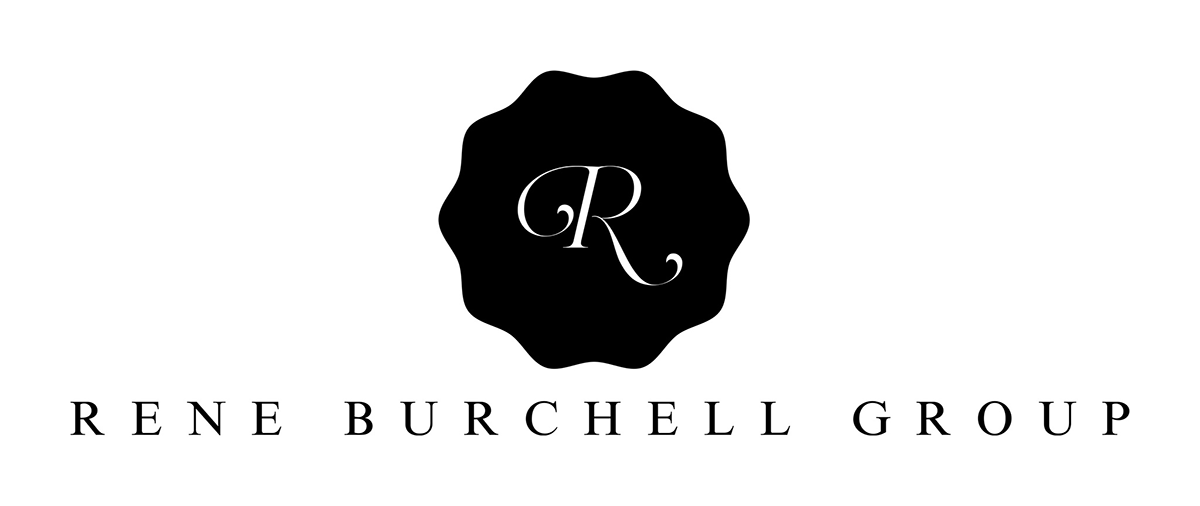When you’re thinking about listing your house for sale, you should know that one of the most important, if not the most critical, elements to selling your house is pricing? The amount you put on the price tag for your house determines, by and large, whether or not you’ll have a successful sale. Your house could sell quickly and effortlessly, or it could drag out for months and take multiple price drops. Or worse, you could price your house so high it becomes unsellable even after you drop the dollar signs. Here’s your ultimate guide to understanding the importance of pricing when selling your home.
Sticks and Stones | The Expense of Rumors
 A house can become considered unsellable if it develops a reputation, but how does that happen? If nothing bad has happened in a home, there’s no tragic tale, no epic haunting, no murder-suicide or unsolved mystery, then how can a house develop a bad reputation? Here’s the deal.
A house can become considered unsellable if it develops a reputation, but how does that happen? If nothing bad has happened in a home, there’s no tragic tale, no epic haunting, no murder-suicide or unsolved mystery, then how can a house develop a bad reputation? Here’s the deal.
A buyer enters the market excited to find the right home. That buyer tours the limited inventory and waits anxiously for something new to be listed. When checking the new listings, the buyer can see that many of the houses he or she had viewed previously have been sold. Not this one. It’s still here. The next week, the buyer notices the house is still there, and that the price has been reduced. Then, the price is reduced again. Eventually, the buyer begins to wonder why no one else wants to buy that house. Without even having seen the property, that buyer then assumes that if no one else wanted it, he or she doesn’t either. People assume the worst. They assume electrical problems, plumbing problems, problems with the foundation, the structure, pests. And then, all you can do is reset.
To reset, you’ll pull the house from the market, remove the listing, and take away the for-sale sign. You should let the attempt rest long enough that all the home buyers in that last pool have moved on, and a new crop of buyers is on their way in for a new first impression.
Missed it By That Much | The “99” Mistake
As a society of consumers, we have been acclimated to think in terms of bargains, deals, best price, bottom dollar, and steal of a deal. When we need to move something and we need to move it quickly, we put it on sale, or we list it for a bargain price. One trick of marketing used to be to use the .99 instead of rounding up to the next dollar. For example, spending $2.99 feels like spending less than $3. Many homeowners, then, when thinking of pricing their house for sale, think they’re being wise if they price their home at $299,999 instead of at $300,000. Here’s why that might backfire.
Buyers shop by price bracket. In buyers’ terms, we think, “My budget is between $300,000 and $400,000.”
If you price your house at $299,999, it may never be shown to the buyer who is shopping for a $300,000 house.
Logically, we start shopping at the lowest end of our budget, not our highest. So if a buyer has a budget of $200,000-$300,000, they may see your house for sale at $299,999, but they’ll see it at the end of their search (if they make it that far), and they’ll also notice that your house is at the very tippy top of their budget, making it just about out of reach – and definitely out of reach if it’s not move-in ready.
In essence, if you opt to price at $299,999, you’ve missed the people shopping at $300,000 or higher because they never saw your offerings, and you’ll rule out the people shopping under $300,000 because you’re too close to the top of their budget.
You won’t be doing anyone any favors by trying to price your house at $149,900 instead of $150,000. That marketing tactic may have been brilliant for retail back in its time, but does not apply to real estate in modern day.
Sentimental Value | The Biggest Misconception of All
 Something weird happens inside the brain of a homeowner when they are asked for the first time, “How much are you going to sell your house for?”
Something weird happens inside the brain of a homeowner when they are asked for the first time, “How much are you going to sell your house for?”
That question slips an internal metal switch that begins to play back, in slow motion, fast forward, rewind, and overlapping fashion, all the memories you have made within the walls of that structure. You see babies being born and having all their “firsts” from steps to dates. You see holiday celebrations, family get togethers, birthday parties, and special events. You remember all the painting, tile-laying, floor-installing upgrades, updates, and renovations you’ve done over the years to make that house your home – not so much the materials, but the memories of imbuing the home with your own creative style. You remember animals who have come and gone who only knew life at that house. And now you ask yourself what that house is worth? Well, heck, it’s priceless!
Alas, you’re confusing experiences with physical structure. You’re not selling your memories. Your life events aren’t for sale. Keep the focus: You are pricing a piece of property of a specific size with a dwelling on it in a particular location.
And don’t worry. When you move, all those memories and all that emotion gets to go with you at no charge. You don’t have to buy a box to pack it in or pay to have it shipped; it’s yours inherently. And wherever you’re going will provide a solid platform on which you can make a new set of memories and life experiences.
Return on Investment
If you are an investor who is purchasing property for the sole purpose of turning a profit within a particular time frame, then yes, you should absolutely concern yourself with selling the house quickly for considerably more than you paid. However, if you’re a person who bought a house several years ago as a personal residence where you’ve enjoyed living your life, then return on investment shouldn’t be your first consideration when pricing your home.
Real estate market values change – quite literally from day to day. Anything can make the real estate industry wobble – from natural disasters such as hurricanes and tornadoes to politics and election seasons.
When you price your house, it’s not so much about what you put in when you bought it, but more what a buyer will pay for it today. If the current market prices feel insulting to you and you wouldn’t dream of pricing your house so low – or if it just feels too painful that you feel like you’re losing money, then perhaps now is not the best time to sell; you might do better waiting for a later market shift in your favor. But if you’re selling because you have to – because you need to upsize, downsize, relocate for work, or for financial reasons, then you’ve got no choice but to work with what the market will bear.
Free Home Valuation Calculators | The Cost of Instant Gratification
Home valuation calculators are handy. They’re convenient. They’re fun for instantly satisfying the curiosity of what your house might be worth. And they’re easy! Log on, type in a little bit of data, and then within a matter of seconds you can find out what you might be able to price your house for in the current real estate market. However, they’re far from accurate. If you ran out and stuck a matching price tag on your house, you may find yourself losing thousands of dollars or more.
Home valuation calculators are incapable of assessing current condition of neighborhood, land, or structure.
When you’re working on a pricing strategy, there’s no reason you can’t take full advantage of the free home valuation calculators online. They’re a great starting point to get the ball rolling.
Listing Appraisals
 Listing appraisals, or pre-appraisals, solve the problem left behind by home valuation calculators online that are incapable of providing human assessment. Appraisals are human assessments of real estate based on education and experience centered on scientific and creative data processed by a professional in the industry. You’ll pay anywhere from $300-$700, roughly, for a good listing appraisal. The appraiser obtains public records information, a comprehensive market analysis report (CMA), and then visits the property to personally inspect and assess the condition.
Listing appraisals, or pre-appraisals, solve the problem left behind by home valuation calculators online that are incapable of providing human assessment. Appraisals are human assessments of real estate based on education and experience centered on scientific and creative data processed by a professional in the industry. You’ll pay anywhere from $300-$700, roughly, for a good listing appraisal. The appraiser obtains public records information, a comprehensive market analysis report (CMA), and then visits the property to personally inspect and assess the condition.
The appraiser not only provides estimates of what he or she believes your house may be worth, but can also supply you with information that can help you increase the overall value of your home by thousands of dollars. For example, appraisers measure real estate values in $500 increments. If your appraiser notices torn window screens, oily doors, cracked electrical sockets, rusty doorknobs, leaky sinks, or other small items, those small items get grouped together into a $500 bundle, even if it would only cost you $40 and $40 minutes to make repairs.
On the down side, an appraiser is nothing more than a professional, educated opinion. You are not able to use that appraisal in the transaction when the bank requests an appraisal, nor can you use it to justify pricing to buyers who may see that report as biased.
Furthermore, because the real estate market shifts and moves so rapidly, the appraisal you receive could be outdated within several days.
Still, some people find it well worth the investment to obtain a professional, third-party opinion of what the house is worth when you’re considering how to price your house for sale.
Your Real Estate Agent’s Opinion
When it comes to pricing your house for sale, your most reliable resource is your real estate agent. Hopefully, you interviewed agents extensively and choose wisely, or are in the process of doing so. Your real estate agent’s first job is to help you set a competitive sales price for your home.
Your real estate agent gets paid by commission, so he or she earns a paycheck that is in direct correlation to a percentage of the price of your house. Because your agent has personal gain in the process, you can rest assured that your agent will recommend the most competitive price possible.
To establish the fairest price, your agent relies on much of the same information as your appraiser. The agent obtains public access records and a comprehensive market analysis for your review.
A comprehensive market analysis is a report that details real estate transactions in your area. You’ll be able to see a list of recently sold homes, their original asking price, length of stay on the market, number of price reductions, and the final sales price. This is a goldmine of information because you can see the results of good pricing vs. bad pricing. You can measure the consequences by seeing how long a house remained on the market before selling.
Don’t be confused by the terms asking price and sales price. Both numbers are important, but they’re not the same. Asking price is what the seller hoped to gain from the sale of the home whereas selling price demonstrated what buyers were willing to pay. If your price is too high, then when buyers submit offers, the price they offer to pay will be less than what you’re asking.
Conclusion
You and you alone are responsible for setting the sales price on the house you’re selling. To determine the price, you can utilize a multitude of tools and resources for best outcome. Obtain a free online home valuation calculation. Compare that number with the estimate provided by the listing appraiser. Couple that information with the expert advise you obtain from your real estate agent and the comprehensive market analysis and you’ve got a good idea of how that information is beginning to shape up. Don’t rush to find a price for your house, and don’t sell yourself short by trying to list it with a discount price. List it for a fair price in comparison to other homes in your area and you’ll find that you can sell your house quickly, for top dollar, and minimal stress all by applying the right pricing strategy.
Call Rene Burchell today at 469-877-3303 to tour available houses for sale in Frisco and surrounding areas.


